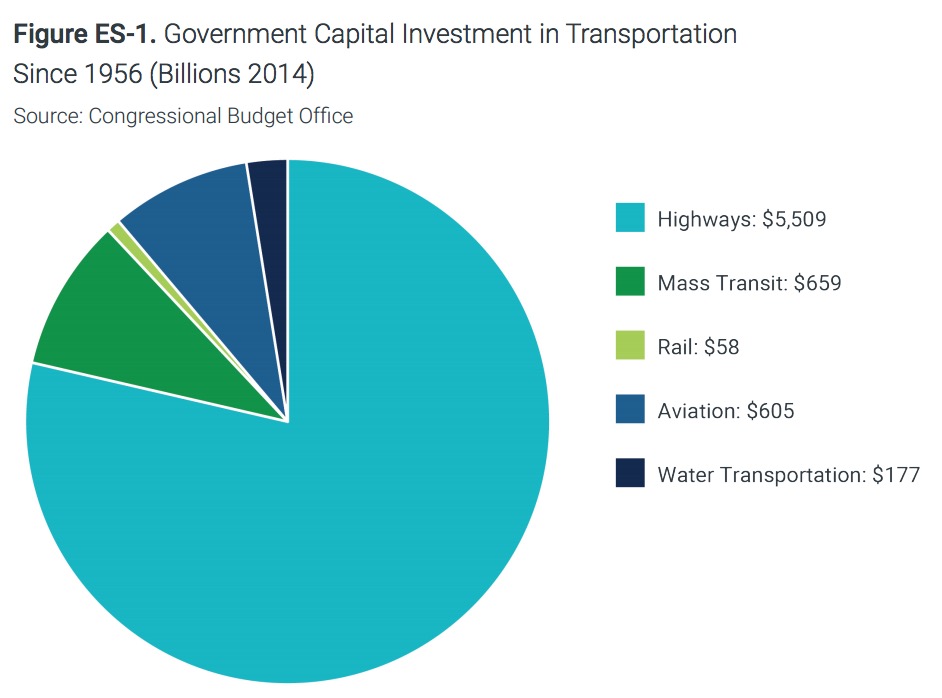FRONTIER GROUP
Written by Tony Dutzik, Frontier Group
Executive Summary
 America and the world must reduce emissions of greenhouse gases immediately and dramatically if we are to prevent the worst impacts of global warming. If the world is to meet the promises of the Paris Climate Agreement, and limit global warming to no more than 2°C, the United States will have to virtually eliminate carbon pollution by mid-century.
America and the world must reduce emissions of greenhouse gases immediately and dramatically if we are to prevent the worst impacts of global warming. If the world is to meet the promises of the Paris Climate Agreement, and limit global warming to no more than 2°C, the United States will have to virtually eliminate carbon pollution by mid-century.
America’s transportation system has emerged as Climate Enemy #1, with cars, trucks and other vehicles now representing the nation’s largest source of carbon pollution, and America producing more transportation carbon pollution per capita than any other major industrialized nation.
There is hope, however. New technologies and emerging social trends, from the resurgence of interest in walkable neighborhoods to advances in electric vehicles – create new opportunities to move the nation toward a zero-carbon transportation system, and to do it in ways that improve our health and well-being and support a vibrant economy.
To get there, America must reimagine our transportation policies and empower cities and states to implement effective solutions.
Current federal and state transportation policies in the United States often set us back in the fight against global warming. To move toward a carbon-free transportation system, America must adopt a bold new vision for transportation policy – with 50 common-sense policy reforms helping to chart a new way forward.
America has the tools to move toward a carbon-free transportation system.
America can eliminate carbon pollution from transportation in time to prevent the worst impacts of global warming. The New Transportation Toolbox is rich with promising approaches to cut carbon pollution:
- Repowering Vehicles: Efficient electric vehicles that can be powered by clean, renewable electricity are entering the marketplace faster than the hybrid cars of a decade ago and technology continues to improve, removing barriers to electric vehicle adoption.
- Urbanization and Smart Growth: American cities, especially their downtowns, are experiencing a renaissance, driven by a growing desire for walkable living.
- Shared Mobility: An explosion of technology-enabled services – from carsharing to bikesharing to Lyft and Uber – has begun to revolutionize transportation in many cities. Services such as carsharing have already been shown to reduce vehicle ownership, driving and carbon pollution, and smart public policies can help to ensure that other shared mobility services deliver benefits as well.
- Public Transportation: Public transportation reduces vehicle travel (and greenhouse gas emissions) by about 10 percent in U.S. cities, and cities across the country are considering bold plans to expand access to high-quality transit.
- Reallocating Space: Cities in the United States and around the world are reallocating space formerly devoted to cars to other public purposes, helping to fuel increased use of low-carbon modes of transportation.
- Smart Pricing: Americans typically pay nothing to drive on most roads and enjoy the lowest gas taxes in the industrialized world, encouraging excessive driving and congestion. Cities around the world have shown that smart pricing policies can reduce congestion and encourage the use of low-carbon modes of travel.
- Walking and Biking: Americans prefer walking to any other mode of transportation, according to a recent survey, and the number of people traveling by bicycle in many cities has grown dramatically in the last decade.
- Information Technology: Advances in technology are enabling Americans to plan, schedule and pay for trips via low-carbon modes as easily as traveling by car.
In addition, autonomous vehicles can be deployed in ways that can support efforts to reduce greenhouse gas emissions – especially if they facilitate the use of shared mobility services, vehicle electrification and smart pricing, and if public policy limits any increases in vehicle travel resulting from automation.
Download full version (PDF): 50 Steps Toward Carbon-Free Transportation
About Frontier Group
www.frontiergroup.org
Frontier Group provides information and ideas to help citizens build a cleaner, healthier, fairer and more democratic America. We address issues that will define our nation’s course in the 21st century – from fracking to solar energy, global warming to transportation, clean water to clean elections. Our experts and writers deliver timely research and analysis that is accessible to the public, applying insights gleaned from a variety of disciplines to arrive at new ideas for solving pressing problems.






 RSS Feed
RSS Feed